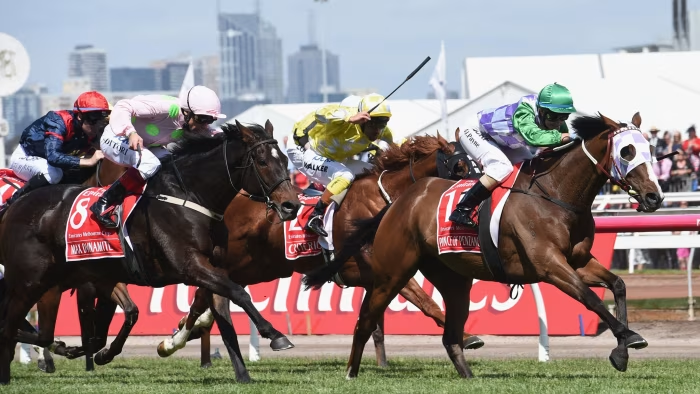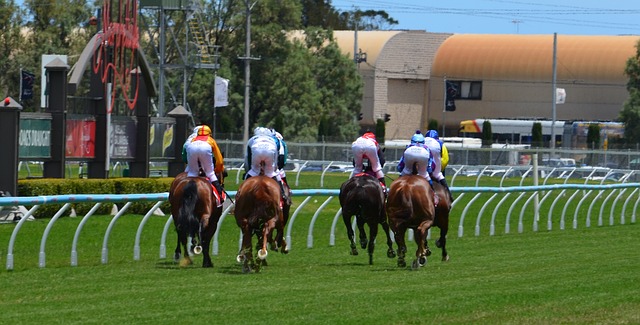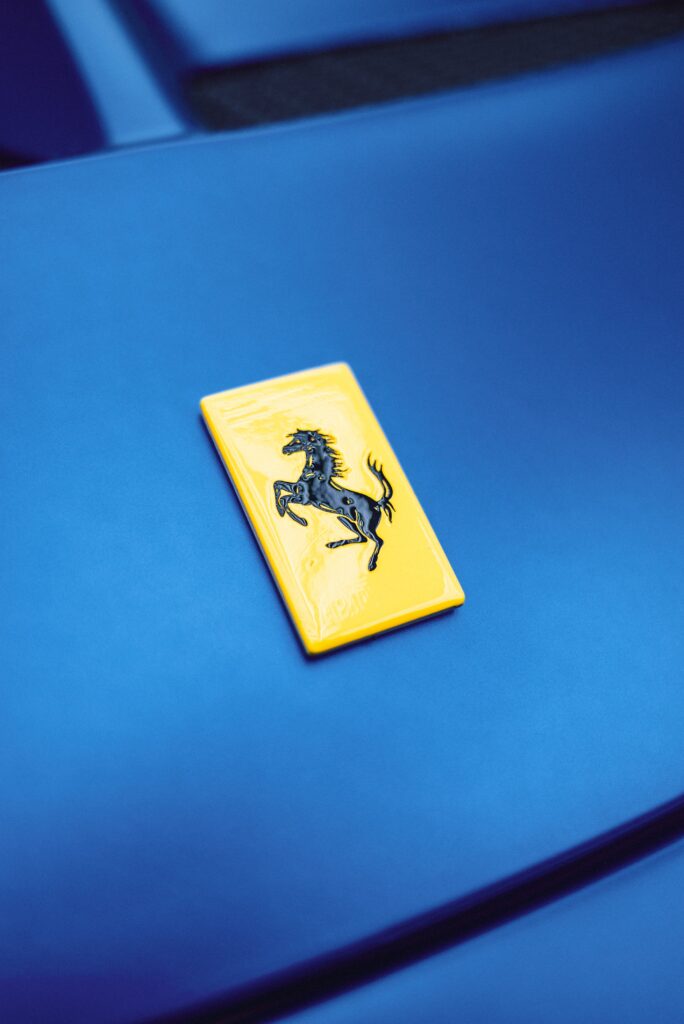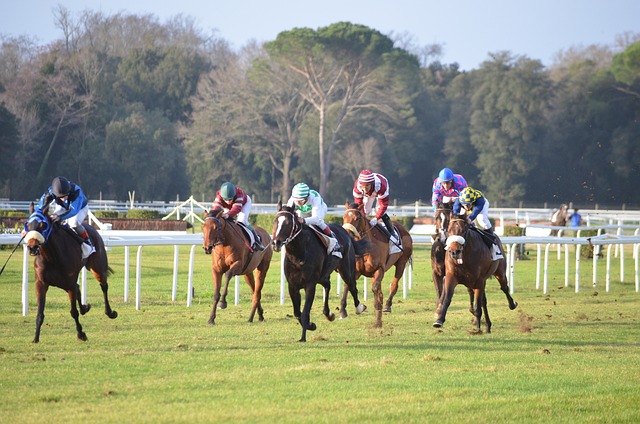Horse racing has long been considered a male-dominated sport, but over the years, female jockeys have broken barriers and proven themselves as formidable competitors on the track. From historic victories to groundbreaking achievements, these women have redefined what it means to be a champion in the racing world. Here’s a look at some of the best female jockeys of all time and their most remarkable wins.

1. Julie Krone – The First Woman to Win a Triple Crown Race
Julie Krone is one of the most accomplished female jockeys in history. She made history in 1993 by becoming the first woman to win a Triple Crown race when she rode Colonial Affair to victory in the Belmont Stakes. Over her career, she secured more than 3,700 wins and was inducted into the National Museum of Racing’s Hall of Fame in 2000.
Greatest Win: 1993 Belmont Stakes
Krone’s victory aboard Colonial Affair was a defining moment in horse racing, proving that female jockeys could compete and win at the highest levels. This win solidified her reputation and encouraged more women to enter the sport, despite the challenges they faced in a male-dominated industry. Krone’s perseverance and talent opened doors for many aspiring female jockeys.
2. Hayley Turner – The Trailblazer for British Female Jockeys
Hayley Turner is one of the most successful female jockeys in British horse racing. She became the first woman to ride 100 winners in a calendar year in the UK and has since inspired many young women to pursue careers in the sport.
Greatest Win: 2011 July Cup
Turner became the first woman to win a British Group 1 race when she rode Dream Ahead to victory in the July Cup at Newmarket, breaking new ground for female riders in the UK. Turner has also competed internationally and proven that female jockeys can achieve consistent success at the highest levels. Her career is a testament to the growing acceptance and recognition of women in horse racing.
3. Chantal Sutherland – The Canadian Star
Chantal Sutherland is a highly successful jockey known for her wins in both Canada and the United States. Often compared to Julie Krone, Sutherland has competed in some of the biggest races in North America. Her career spans several decades, and she has been an ambassador for women in the sport, showing that female jockeys can succeed against top male competitors.
Greatest Win: 2012 Santa Anita Handicap
Riding Game On Dude, Sutherland became the first female jockey to win the Santa Anita Handicap, one of the most prestigious races in the United States. This victory further demonstrated that women could handle the pressure of high-stakes racing and succeed at the highest level of competition.
4. Rosie Napravnik – Dominating the Kentucky Circuit
Rosie Napravnik emerged as one of the most dominant female jockeys in recent history. She was the first woman to win the Kentucky Oaks twice and the highest-earning female jockey in American history. Napravnik’s career has been filled with record-breaking achievements, and her skill on the track made her a fan favorite.
Greatest Win: 2012 & 2014 Kentucky Oaks
Napravnik won the Kentucky Oaks with Believe You Can in 2012 and Untapable in 2014, cementing her reputation as one of the best female jockeys in the sport. Her ability to navigate competitive races and make decisive moves in crucial moments showcased her exceptional talent and strategic mindset.
5. Hollie Doyle – The Rising Star
Hollie Doyle is a modern-day powerhouse in horse racing. She has shattered multiple records in the UK and continues to push the boundaries for female jockeys. Her dedication, hard work, and resilience have earned her respect in the industry, and she continues to set new benchmarks for women in horse racing.
Greatest Win: 2020 British Champions Sprint Stakes
Doyle made history when she won the British Champions Sprint Stakes on Glen Shiel, becoming the first female jockey to win a race on British Champions Day. This win, along with her numerous other achievements, proves that female jockeys are not only competitive but capable of excelling at the highest level of horse racing.
The Impact of Female Jockeys in Horse Racing
The success of these incredible female jockeys has paved the way for future generations of women in the sport. Their victories have not only earned them recognition but have also proven that skill, determination, and perseverance matter more than gender in horse racing.
The Challenges They Faced
Despite their success, female jockeys have had to overcome significant challenges, including:
-
Limited opportunities – Women were historically denied chances to ride in major races.
-
Stereotypes and bias – Many believed that female jockeys were not strong enough to handle the physical demands of the sport.
-
Lack of mentorship – Early female jockeys had few role models or mentors to guide them.
The Progress in Women’s Horse Racing
Thanks to pioneers like Julie Krone, Hayley Turner, and Rosie Napravnik, the racing industry is gradually becoming more inclusive. Today, more women are entering the sport, and race organizers are offering more opportunities for female jockeys to compete in prestigious races.
The Future of Women in Horse Racing
The future looks bright for female jockeys as the industry continues to evolve. Here are some promising signs for the next generation:
-
More Women Entering the Sport – The number of female jockeys is increasing worldwide, and more women are securing top rides in major races.
-
Increased Support and Sponsorships – As the achievements of female jockeys gain recognition, sponsors and investors are supporting them more than ever.
-
Breaking More Records – With continued dedication and talent, female jockeys are expected to set new records and redefine the standards of excellence in horse racing.
Conclusion
The contributions of female jockeys to horse racing are undeniable. From Julie Krone’s groundbreaking Belmont Stakes victory to Hollie Doyle’s record-breaking wins, these women have left an indelible mark on the sport. Their greatest wins are not just milestones in their careers but also significant moments in horse racing history. As more women continue to rise in the sport, the future looks bright for female jockeys worldwide.
By continuing to challenge norms and achieve greatness on the track, these exceptional women inspire a new generation of aspiring jockeys. Their impact extends beyond the racing world, proving that determination and talent can break barriers and reshape history. As female jockeys gain more recognition, we can expect even greater achievements in the years to come.
The Best Filipino Card Games Online

If you love the excitement of strategic card games like Tongits, you’ll find endless entertainment with Tongits Plus and GameZone, the ultimate platforms for Filipino card game enthusiasts. Tongits Plus brings a modern twist to the classic game with exciting tournaments, social features, and rewards, while GameZone offers a variety of beloved Filipino card games like Pusoy and Lucky 9 for competitive play. Whether you’re a casual player or a seasoned pro, these platforms provide the perfect space to challenge friends, join vibrant communities, and test your skills anytime, anywhere.
 Younger readers may have never even heard of the ‘Autumn Double’ but, in its heyday, the challenge of coupling the winners of the two major late-season handicaps run on the Rowley Mile at Newmarket, namely the Cesarewitch and the Cambridgeshire, filled many column inches in the racing press. Of course, both races still exist, albeit that the Cambridgeshire now precedes the Cesarewitch, and both are as competitive as ever, but coverage of the Autumn Double, as a betting medium, is nothing like it once was.
Younger readers may have never even heard of the ‘Autumn Double’ but, in its heyday, the challenge of coupling the winners of the two major late-season handicaps run on the Rowley Mile at Newmarket, namely the Cesarewitch and the Cambridgeshire, filled many column inches in the racing press. Of course, both races still exist, albeit that the Cambridgeshire now precedes the Cesarewitch, and both are as competitive as ever, but coverage of the Autumn Double, as a betting medium, is nothing like it once was.

 The Triumph Hurdle has been a fixture of the Cheltenham Festival since 1968, but was inaugurated in 1939 at Hurst Park, where it continued until the closure of the Surrey course in 1962. Run over two miles and a furlong on the New Course and restricted to juvenile – that is, four-year-old – hurdlers, the race is currently scheduled as the opening race on the fifth and final day of the Cheltenham Festival, Gold Cup Day. The Grade 1 contest has been sponsored by J.C. Bamford Excavators Limited (JCB) since 2002.
The Triumph Hurdle has been a fixture of the Cheltenham Festival since 1968, but was inaugurated in 1939 at Hurst Park, where it continued until the closure of the Surrey course in 1962. Run over two miles and a furlong on the New Course and restricted to juvenile – that is, four-year-old – hurdlers, the race is currently scheduled as the opening race on the fifth and final day of the Cheltenham Festival, Gold Cup Day. The Grade 1 contest has been sponsored by J.C. Bamford Excavators Limited (JCB) since 2002. At various points in his career,
At various points in his career,